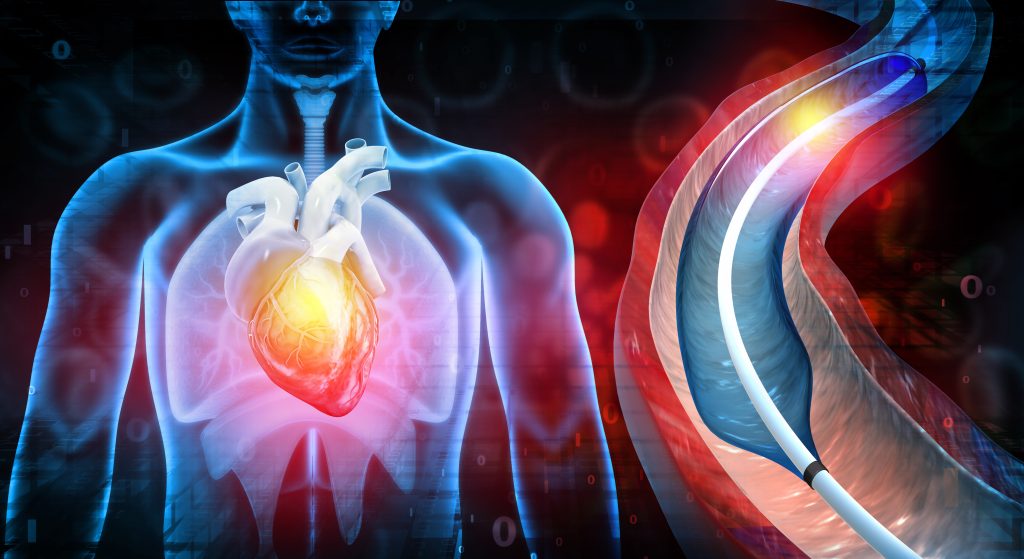Understanding the Significance of Cardiology in Modern Health Care Solutions
Cardiology plays an essential duty in modern-day medical care, particularly as heart problem continues to be the leading source of mortality worldwide. Advancements in diagnostics and treatment have transformed patient care, enabling earlier treatments and boosted end results. The shift in the direction of preventive cardiology encourages individuals to handle their wellness proactively. As modern technology remains to progress, the combination of ingenious services may further redefine cardiology's effect on public health, motivating a better assessment of emerging fads and their effects.
The Occurrence of Heart Problem and Its Effect On Public Wellness
Although heart problem stays the leading cause of fatality internationally, its influence extends much beyond individual people to impact public health systems and economic situations. The high occurrence of cardiovascular disease positions a considerable pressure on health care sources, requiring increased funding for prevention, rehab, and treatment programs. Public wellness initiatives need to address danger variables such as weight problems, smoking cigarettes, and sedentary way of lives, which add greatly to the increasing occurrence of heart conditions.Moreover, the economic concern connected with heart problem is enormous, including not just straight medical expenses however additionally indirect expenses associated to shed performance and early mortality. Communities deal with obstacles in taking care of these costs, frequently causing differences in healthcare access and outcomes. As the population ages and lifestyle-related threats proceed to escalate, the necessity for effective cardiology interventions becomes vital. Subsequently, resolving heart problem is not only a matter of individual health but also a vital public health and wellness concern.
Advances in Heart Diagnostics and Imaging Techniques
Current improvements in heart diagnostics and imaging methods have revolutionized the area of cardiology, boosting the capability to find and keep an eye on cardiovascular disease. Strategies such as cardiac MRI, CT angiography, and echocardiography have ended up being significantly advanced, supplying comprehensive pictures of heart frameworks and functions. These methods permit the early recognition of problems like coronary artery disease, cardiac arrest, and valvular disorders.Moreover, innovations in non-invasive diagnostics, such as wearable innovation and remote monitoring tools, have encouraged individuals and health care service providers. These devices assist in real-time tracking of heart rhythms and various other important indicators, causing timely treatments. Additionally, fabricated intelligence is being incorporated into imaging evaluation, improving precision and efficiency in medical diagnosis.
Innovations in Therapy Options for Heart Conditions
Current developments in cardiology have actually resulted in substantial innovations in therapy alternatives for heart conditions. These consist of advanced surgical strategies that enhance procedural end results and emerging medicines that supply new opportunities for treatment. As the field develops, these technologies play an important function in boosting patient care and results.
Advanced Surgical Techniques
Technologies in surgical methods have actually changed the landscape of cardiology, offering new expect people with heart problems. Minimally intrusive procedures, such as catheter-based treatments, have considerably lowered recovery times and medical facility remains. Methods like robotic-assisted surgical procedure enhance precision, allowing cosmetic surgeons to navigate complicated physiological frameworks with better precision. Improvements in imaging innovation assist in real-time visualization throughout procedures, enhancing results. Transcatheter aortic valve replacement (TAVR) exemplifies a breakthrough in treating aortic constriction, making it possible for shutoff substitute without open-heart surgical treatment. Furthermore, hybrid methods that integrate catheter-based and medical techniques supply tailored solutions for various heart concerns. These sophisticated surgical techniques not just improve client safety but additionally increase treatment options, emphasizing the essential function of development in modern cardiology techniques.
Arising Medications and Treatments
As the landscape of cardiology remains to progress, emerging therapies and drugs play an essential role in boosting treatment options for heart disease. Advancements such as novel anticoagulants and advanced lipid-lowering representatives have transformed the monitoring of heart diseases, greatly lowering individual morbidity and mortality. In addition, the advancement of gene treatments and regenerative medication provides encouraging opportunities for dealing with conditions formerly deemed permanent. Clinical tests are continually exposing the efficacy of these therapies, pressing the boundaries of standard therapies. The combination of digital health technologies facilitates customized medicine, permitting for tailored therapy strategies based on genetic and way of life elements. Jointly, these improvements underscore the vibrant nature of cardiology, enhancing client outcomes and redefining criteria of care in modern-day health care.
The Function of Preventive Cardiology in Patient Care
Preventive cardiology plays an essential function in individual treatment by concentrating on the recognition of threat factors that contribute to heart problem. Through lifestyle modification techniques and early detection techniques, doctor can successfully minimize the occurrence of cardio events - Cardiology. This positive technique not only enhances client outcomes but additionally advertises long-lasting health and wellness
Risk Factor Identification
While heart diseases stay a leading reason for morbidity and mortality worldwide, reliable danger element identification functions as a keystone of precautionary cardiology. Identifying threat variables such as high blood pressure, household, diabetes, and hyperlipidemia background is vital for early treatment. Healthcare specialists use various evaluating methods to review these elements, enabling tailored preventive procedures. Additionally, recognizing a client's way of living choices, such as smoking cigarettes and physical inactivity, better informs threat assessments. This detailed assessment makes it possible for clinicians to establish personalized care strategies aimed at mitigating dangers. By focusing on risk aspect recognition, healthcare systems can improve person end results and lower the general worry of heart diseases, inevitably contributing to enhanced public wellness techniques and source appropriation.
Lifestyle Adjustment Approaches
A multitude of research studies highlights the important role of lifestyle adjustment methods in lowering cardiovascular disease danger. These methods incorporate nutritional adjustments, increased exercise, cigarette smoking cessation, and weight administration. By embracing a heart-healthy diet regimen abundant in fruits, veggies, entire grains, and lean healthy proteins, people can decrease cholesterol degrees and blood stress. Normal exercise reinforces the heart and boosts total cardio wellness. Furthermore, stopping cigarette smoking considerably minimizes the danger of Visit This Link cardiovascular disease and improves healing rates for those with existing conditions. Weight management further adds to cardio health and wellness by alleviating other risk factors such as diabetes and high blood pressure. Applying these way of life alters not only advertises specific wellness but also functions as a foundation of precautionary cardiology in patient treatment.
Very Early Detection Strategies
Way of living adjustments significantly add to minimizing cardiovascular disease threats, however they are most effective when coupled with early detection strategies. Precautionary cardiology emphasizes the relevance of identifying possible heart problems prior to they intensify into significant conditions. Strategies such as blood pressure monitoring, cholesterol testing, and advanced imaging innovations like echocardiograms play essential duties in assessing cardio health and wellness. Biomarkers and hereditary testing additionally enhance the accuracy of early discovery, permitting tailored preventative techniques. Normal cardiac danger evaluations equip healthcare suppliers to intervene proactively, potentially protecting against cardiovascular disease and strokes (Cardiologist near me). By integrating these very early discovery methods right into regular treatment, clients can take advantage of prompt way of life treatments and targeted therapies, ultimately enhancing end results and enhancing quality of life
Integrating Innovation Into Cardiology Practices
As innovations in technology remain to reshape different areas, the assimilation of innovative tools and systems into cardiology methods has actually come to be essential for enhancing individual treatment and end results. Telemedicine systems allow cardiologists to monitor patients remotely, improving access to care while decreasing the problem on medical care centers. Wearable tools, such as smartwatches, make it possible for continual heart price surveillance, signaling both patients and physicians to potential concerns in real-time. In addition, expert system (AI) is being made use of to assess substantial quantities of cardiac data, assisting in early medical diagnosis and tailored therapy strategies. Advanced imaging methods, including 3D echocardiography, enhance visualization of heart structures, bring about extra specific treatments. Electronic health documents (EHRs) enhance individual info management, ensuring that cardiologists have prompt access to important data. With each other, these technical developments are transforming cardiology, advertising positive management and boosted health and wellness outcomes for people with cardio conditions.
The Relevance of Client Education And Learning and Interaction
Person education and involvement play a critical duty in the management of cardio health. By gearing up people with knowledge concerning their conditions, treatment alternatives, and lifestyle modifications, medical care companies encourage people to take an active function in their treatment. This proactive method can bring about improved adherence to recommended medicines, nutritional changes, and exercise programs, inevitably lowering the risk of complications.Engagement likewise promotes a solid patient-provider partnership, encouraging open communication and depend on. When people really feel informed and involved, they are more probable to voice worries and ask concerns, which can cause far better scientific end results. Additionally, educational resources, such as workshops or digital platforms, can improve understanding and promote self-management methods. Generally, focusing on person education and learning and involvement is essential for enhancing cardiovascular health, improving quality of life, and reducing healthcare costs connected with heart diseases.
Future Fads in Cardiology and Their Possible Effect

Often Asked Concerns
What Lifestyle Adjustments Can Lower Heart Illness Danger?
The current inquiry addresses way of life modifications that can significantly reduce heart condition danger. Cardiology care. Adopting a well balanced diet plan, participating in normal physical activity, maintaining a healthy and balanced weight, handling stress, and staying clear of tobacco can especially enhance cardiovascular wellness
Exactly How Can I Identify Early Signs of Heart Issues?
Recognizing very early signs of heart troubles involves surveillance symptoms such as upper body pain, lack of breath, fatigue, and uneven heart beat. Timely recognition of these signs can prompt required medical evaluation and intervention for far better outcomes.
What Are the Distinctions Between Cardiologists and Cardiac Surgeons?
The distinctions between cardiologists and cardiac doctors depend on their duties; cardiologists primarily manage and identify heart disease through non-invasive techniques, while heart surgeons do procedures to fix architectural heart concerns. Each plays an important, unique duty.

Exactly how Typically Should I Get My Heart Health Checked?
What Role Does Genes Play in Heart Illness Risk?
Genes significantly affects heart illness threat, with domestic patterns indicating acquired conditions. Details genes can incline individuals to high blood pressure, cholesterol issues, and various other cardiovascular troubles, highlighting the significance of hereditary screening in reviewing heart health. Heart condition remains the leading reason of death internationally, its impact prolongs much beyond specific patients to impact public wellness systems and economic climates. Public wellness initiatives need to address danger variables such as obesity, smoking cigarettes, and sedentary way of lives, which add greatly to the increasing occurrence of heart conditions.Moreover, the financial burden connected with heart condition is immense, encompassing not just straight clinical costs however likewise indirect expenditures related to lost efficiency and early death. Preventative cardiology plays an important function in person treatment by focusing on the identification of risk aspects that add to heart condition. Fabricated intelligence (AI) and machine knowing are improving diagnostics and individual surveillance, making it possible for very early detection of heart diseases. The differences between cardiologists and cardiac surgeons lie in their roles; cardiologists mainly handle and identify heart conditions through non-invasive methods, while cardiac cosmetic surgeons carry out surgical procedures to correct structural heart concerns.
Comments on “How Cardiology care fortifies your cardiovascular health long-term”